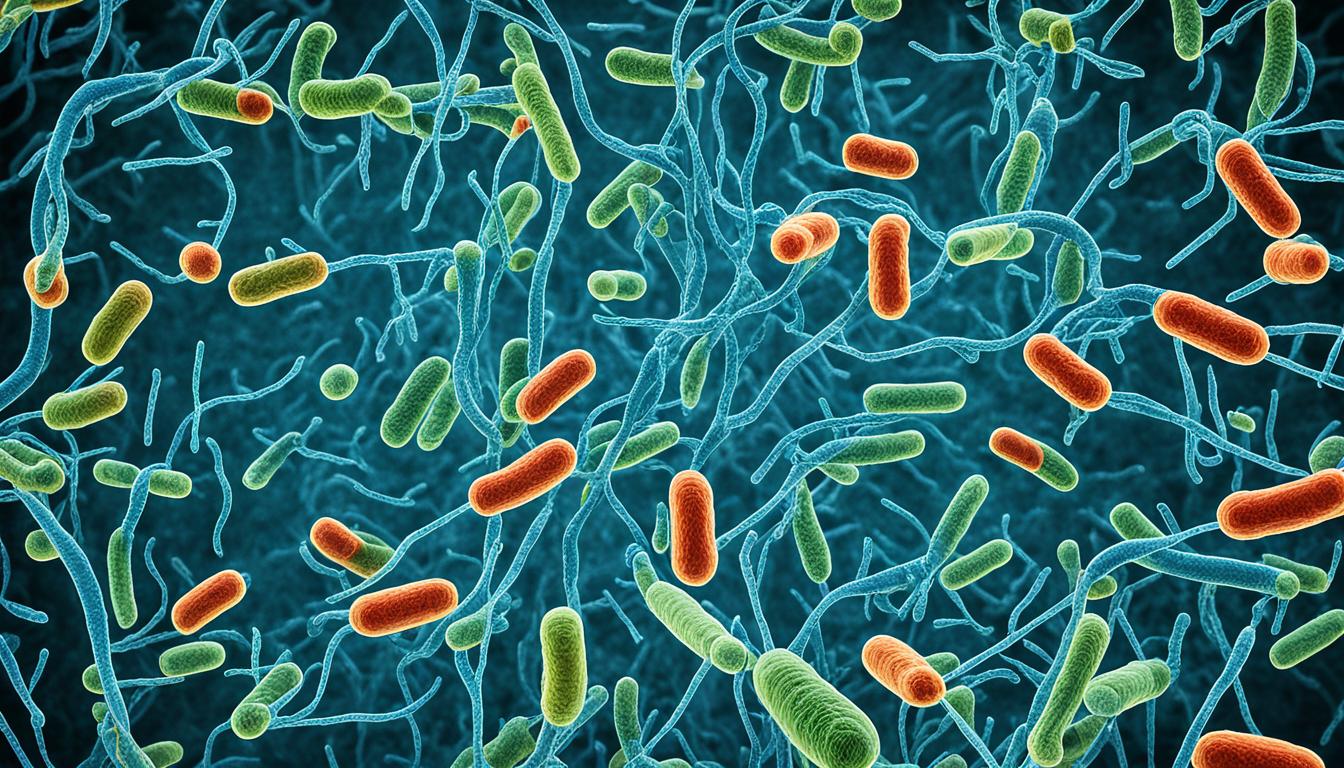Escherichia coli (E. coli) infection is a common bacterial illness. It can trigger a variety of symptoms and issues. This infection comes from the bacterium Escherichia coli. It is usually found in both human and animal intestines. While most types of E. coli don’t harm us, some can cause sickness.
Knowing the signs and roots of E. coli sickness is vital. This knowledge helps in treating and stopping the infection. Symptoms differ based on the E. coli type, but usually include diarrhea, stomach ache, throwing up, and high body temperature. In severe cases, it affects the kidneys and can lead to septic shock.
To diagnose an E. coli infection, doctors use a mix of checks and tests. They look at medical history, symptoms, and might order lab work or imaging tests. Often, they test stool samples for E. coli. If the illness is serious, or if there are complications, they might test blood and urine too.
Stem cell therapy is a new area offering hope for E. coli infection treatment. These cells can help rebuild harmed tissues and adjust the immune response. Ongoing studies aim to understand better how these cells can help with this kind of infection.
Key Takeaways:
- Escherichia coli (E. coli) infection is a common bacterial illness that has a wide range of symptoms and complications.
- Common signs of E. coli include loose bowel movements, stomach pain, queasiness, and high fever. In severe instances, it can cause kidney issues and sepsis.
- Diagnosis often includes a thorough clinical check-up alongside laboratory and imaging tests.
- Stool samples are crucial for identifying E. coli, with blood and urine exams being conducted in severe scenarios.
- Stem cell therapy presents a potential alternative for treating E. coli by assisting in tissue repair and adjusting the immune response.
Symptoms and Causes of Escherichia coli Infection
Escherichia coli, or E. coli, is a harmful bacteria. It causes an infection that leads to various symptoms. The signs you see depend on what part of the body the infection affects.
- Diarrhea, which might have blood
- Abdominal pain
- Vomiting
- Fever
Some people might get very sick. This can cause kidney failure or sepsis. Seek help from a doctor if you have these symptoms. This is true especially if they last a long time or you see other worrying signs.
E. coli infections come from the bacteria itself. You can get it in a few ways:
- Eating food or drinking water that has the bacteria
- Being near or touching someone who has the bacteria and then putting your hands in your mouth
- Touching things like doorknobs that are dirty with the bacteria. Then, if you touch your face, you can get sick.
These infections can start anywhere. Yet, places with poor cleanliness are more of a risk. Knowing the symptoms and causes helps people understand and prevent E. coli.
Preventing Escherichia coli Infection
Staying safe is key to avoiding E. coli. Here are ways to prevent infection:
- Keep your hands clean by washing them often
- Don’t eat meat, eggs, or dairy that aren’t fully cooked or pasteurized
- Wash your fruits and veggies well
- Handle and store food in a safe way
- Drink water that you know is clean
- Maintain good sanitation in shared places
By being careful, you can lower your risk of getting sick from E. coli. This protects not just you but everyone around you.
Diagnosis and Stem Cell Therapy for Escherichia coli Infection
Diagnosing an Escherichia coli infection needs a careful look into the person’s health, lab tests, and scans. Doctors first check the patient’s past health and current symptoms. This helps figure out if an E. coli infection is likely and what tests to do next.
Doctors often test stool samples to spot E. coli bacteria. For more serious cases or if there are complications, they may also check blood and urine. This gives a clearer view of the infection.
Recent studies show that stem cell treatment might help fight E. coli infections. Stem cells can change into different cell types. This quality might help heal damaged areas and boost the immune system against the infection.
Stem cell therapy for E. coli is new, so lots more research is necessary. Even though it’s early, initial trials are promising. This therapy might become a major help for those with tough or repeat E. coli infections.

